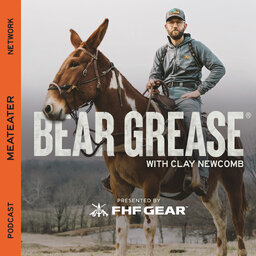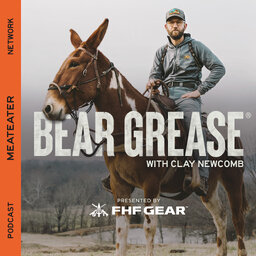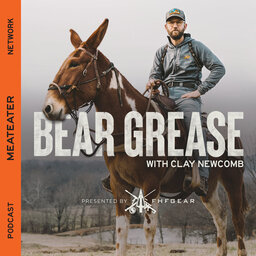Ep. 194: American Wilderness - Unmanaged Land (Part 3)
On this episode, Clay Newcomb explores the personal benefits of wilderness, but also criticisms of this federally managed land. He's again joined by Dr. Dan Flores, Dr. Sara Dant, Steven Rinella, Ben Masters, and Adam Keith.
Connect with Clay and MeatEater
Clay on Instagram
MeatEater on Instagram, Facebook, Twitter, and Youtube
Shop Bear Grease Merch
In 1 playlist(s)
Bear Grease
Home to the Bear Grease podcast and Bear Grease Render show with Clay Newcomb, and This Country Life…Social links
Follow podcast
Recent clips

Ep. 410: Ty Evans - Transformative Mulemanship and Free Agency
51:16

Ep. 408: Render - Real Talk About Men's Health
1:21:04

Ep. 405: Revisiting Jerry Clower
1:04:38
 Bear Grease
Bear Grease